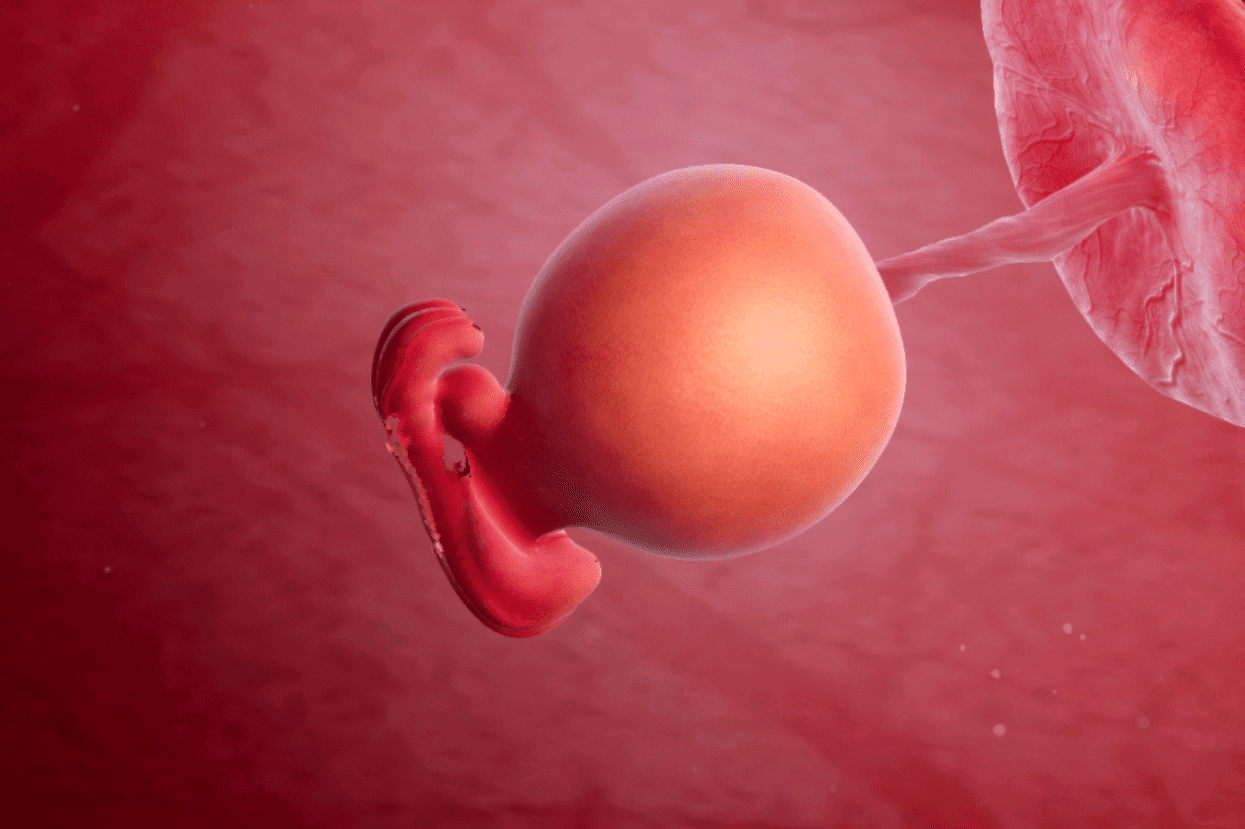Your Pregnancy, Week 5


Heading into Week 5, it might seem like not much is happening. Your baby is still too small to create a visible bump, so you won’t yet be showing, and, whilst you might be very aware of the early signs of your pregnancy, most people who see you will have no idea you’re pregnant.
But that doesn’t mean that nothing is happening. Your baby is continuing to grow and develop, and it is important that you take good care of yourself and your growing baby during these early weeks of pregnancy. You may not yet have had your first prenatal appointment, but now is a good time to book in with your midwife or obstetrician, so they can support you and help you to have a healthy pregnancy.
Your Body
You might not be showing yet, but you may be experiencing signs of pregnancy. By week 5, it is not uncommon for women to experience tender breasts, have the urge to urinate frequently, and feel exhausted, even after a good night’s sleep. You might find it harder getting to sleep due to leg cramps or general restlessness. You might also find yourself napping unexpectedly, or struggling to get out of bed because you’re always tired. The fact is, growing a baby is hard work, and your body is now flooded with hormones that contribute to your feeling of tiredness.
Not all women get these early signs of pregnancy and those that don’t often worry that their lack of symptoms means that something is wrong. However, usually, it just means they are fortunate and they should enjoy the energy and appetite whilst they have it, because they might find it to be short-lived!
If you are exhausted, the best thing to do is look after yourself and take naps when you can. Be assured these feelings won’t last forever, fatigue is usually associated with early pregnancy and tends to go away as the weeks progress.
The other major issue that can affect women during this early part of pregnancy is morning sickness. It is estimated that about half of all pregnant women suffer from nausea and vomiting early in their pregnancies, usually starting from around week 5 or week 6. Another 25% have only nausea with no vomiting, and the final 25% have no nausea or vomiting at all. Despite being called “morning sickness”, the nausea and vomiting does not always occur in the morning. Some women feel just as sick in the afternoon as first thing in the morning, but often the nausea is related to your stomach being empty (as is usually the case when you first wake up), hence the name “morning” sickness.
The good news is that morning sickness is usually a temporary condition and often eases around the 13th week of pregnancy. The bad news is that there is no definitive cure for it. Different women get relief from different approaches: vitamin B6 helps some women; others find that eating smaller meals or sipping on ginger tea can reduce the sickness. Most women do not gain weight during the first trimester; in fact, some even lose a KG or two, particularly if they are suffering from morning sickness. This is not usually a problem. Keep your healthcare provider aware of the situation, try and eat foods that appeal to you and stay hydrated.
Most cases of morning sickness are not dangerous, but there is a form of morning sickness that is likely to require medical attention; Hyperemesis Gravidarum (HG). HG is characterized by severe nausea and vomiting. Women who suffer from this extreme form of morning sickness are at risk of losing essential nutrients and fluid, and becoming dehydrated. Fortunately, this condition is very rare, affecting only about 1-2% of pregnancies. HG is usually diagnosed if you cannot keep down 2.4 litres of fluid in 24 hours, if you lose more than 1 KG in a week, or if you vomit blood or bile.
If you are experiencing severe morning sickness, try the steps mentioned above (vitamin B6, small, frequent meals, ginger tea). If you still get no relief, speak to your doctor or midwife so that you can work together to make sure you and your baby are getting everything you need to thrive.
Your Baby
At week 5, your baby’s foetal age is 3 weeks. The baby is about 1.25 mm long, approximately the size of a mustard seed.
Around this time, the primitive tube that will become your baby’s heart has formed and even begun beating. The structures that will become your baby’s eyes have also appeared. At this point, they resemble small grooves, either side of the brain, but they will continue to develop and eventually become optic nerves and eyes.
Doctor’s Tip:
“Continue taking your vitamins, eat and drink what you fancy, and focus on taking care of yourself.”
Your Pregnancy, Week 4 < > Your Pregnancy, Week 6
Powered by Bundoo®










































